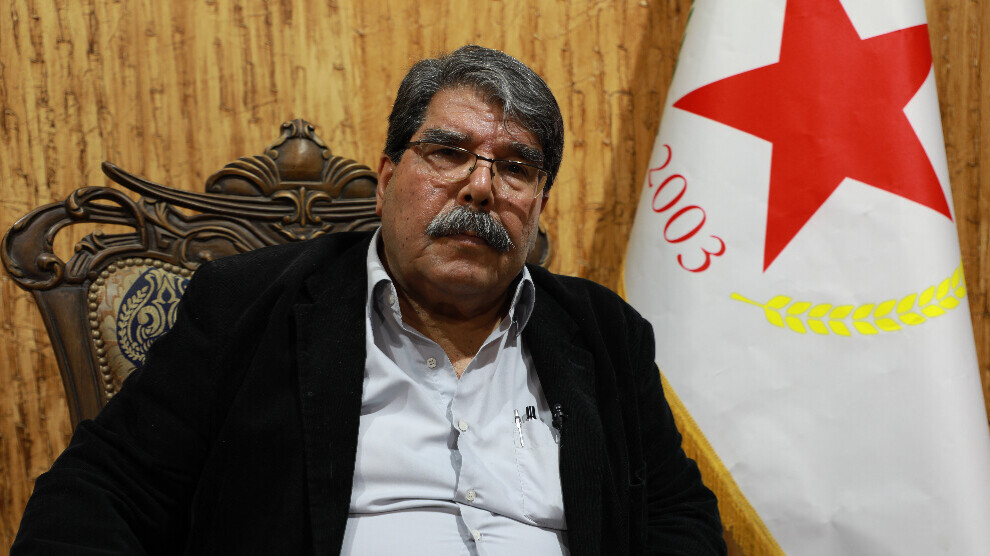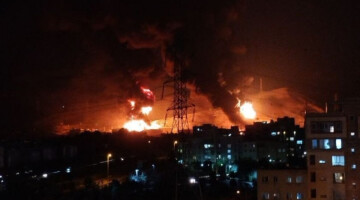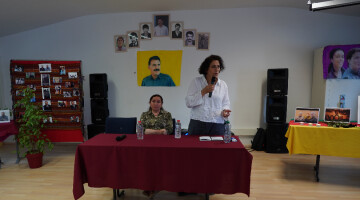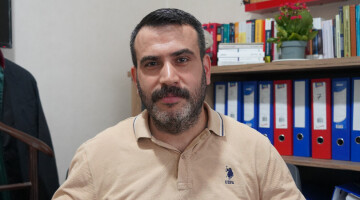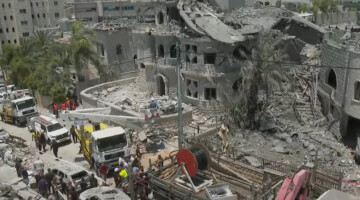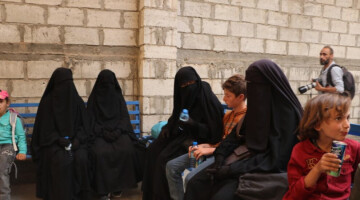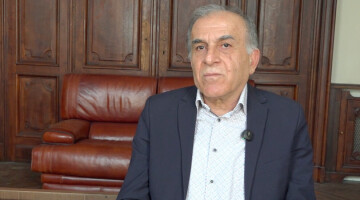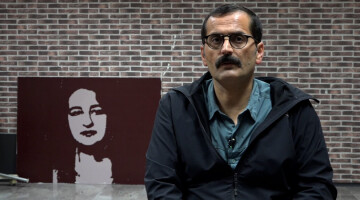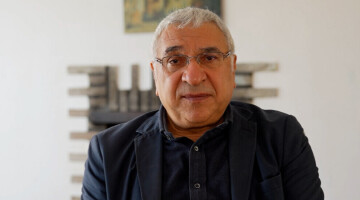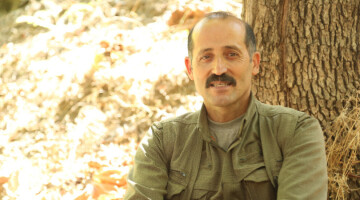At the beginning of April, the deputy foreign ministers of Syria, Turkey, Iran and Russia met in Moscow. There is talk of a rapprochement between the regimes in Ankara and Damascus. At the same time, Saudi Arabia is seeking to end the isolation of the Syrian government in the Arab world and the full rehabilitation of Bashar al-Assad in the region, including the readmission of Syria to the Arab League at the next summit in Riyadh. Apparently, the regime is trying to envisage a return to the diplomatic arena and an agreement with Turkey also at the expense of the Turkish-occupied areas of Syria. In an interview with ANF, the Democratic Union Party (PYD) co-chair Salih Muslim criticised Damascus for not having set concrete conditions such as Turkey's withdrawal from Syria during the talks.
"THE SYRIAN REGIME IS HOSTILE TO KURDS"
Muslim underlined that the Kurdish people should pay attention to the quadripartite meetings between Russia, Iran, Turkey and Syria. "The Syrian regime is hostile to the Kurds. Turkey is the strategic enemy of the Kurdish people. Iran's approach to the Kurdish issue is no different. Russia wants to bring all these parties together for its own interests. They are coming together at a table to get rid of the Kurds of Syria. Their only and common problem is the Kurds, and they are interested in eliminating the autonomous administration that defends the rights of all communities, creates unity and presents many projects here in northern and eastern Syria. If Russia were really interested in solving the problem in Syria - we have had relations since 2012 - it could have solved the problems with the regime. But unfortunately, this has not been done so far. Russia takes a pragmatic approach. It acts according to the perspective: 'How can I benefit from the different sides?' The countries of the quadripartite meetings are not seeking a solution to the conflict for Syria; they are working to deepen existing problems in the country and create new ones. We hope they will turn away from this wrong course."
DAMASCUS PLANNING TO FORM A JOINT FORCE
Remarking that the conflicts between the regimes in Damascus and Ankara are very deep, Muslim continued "We are talking about hundreds of thousands of people who have lost their lives and millions who have had to flee. We are talking about the destruction of 70 per cent of the infrastructure in the villages and towns of Syria. Turkey is the cause of all this. It has occupied large areas of the country from Afrin to Idlib to Girê Spî and has stationed many jihadist militias there, including Al-Qaeda. Turkey continues to support these groups to this day and has deployed these criminal gangs and its own troops. All these actions constitute a plot against the Kurds and the autonomous administration. These four states are in agreement on the Kurdish question. Now, what could an agreement on other issues look like? In our opinion, Damascus is planning to form a joint force against AANES together with Turkey and mercenaries."
"WE HAVE FOUGHT AGAINST ALL KINDS OF TERROR"
Muslim recalled that the people of Rojava fought against all mercenary groups supported by the Turkish state and liberated the occupied areas. He added: “The plan of these forces is unacceptable. We are taking measures against it. They think that if they eliminate the Kurds, the USA will disappear from the region. The US is not here because of the Kurds. They are in the Middle East because of their own interests."
"DAMASCUS DOES NOT DEMAND WITHDRAWAL FROM OCCUPIED TERRITORIES"
Salih Muslim pointed out that Damascus did not make the withdrawal of Turkish troops from the occupied zone a condition for Ankara at the diplomatic meeting in Moscow, as some media outlets have reported. In fact, in mid-March - and thus in the run-up to the quadripartite meeting - Assad said in an interview with the Russian news agency RIA-Novosti that "any dialogue" with his Turkish counterpart depended on reaching the point where Turkey showed a willingness to withdraw "completely and unconditionally" from Syrian territory.
"This means that Damascus wants a clear and credible roadmap presented on how a withdrawal of the Turkish occupiers from Syria should take place. Russia is supposed to vouch for this plan. These demands are correct, but the expectation that Turkey, even if it were to make corresponding concessions, would ultimately adhere to them is a pipe dream. Turkey never sticks to agreements. We are certainly not against Syria and Turkey meeting at the same table and maintaining good neighbourly relations, but the current approach is not right. The word of Turkish fascism is not to be trusted. Turkey says one thing but, in reality, does something completely different. It makes promises and does not keep them. Lessons should be learnt from past experiences."
"WE SUPPORT THE ESTABLISHMENT OF SYRIA'S RELATIONS WITH THE ARAB LEAGUE"
The PYD co-chair recalled that when the Syria issue arose, his party called for a solution to the conflict in the Arab League. He continued: "Today, all options have changed. We have never been against Arab states and establishing relations with them. We are not against Syria becoming a member of the Arab League. But the Arab League has sown a lot of enmity and spilled a lot of blood, and the regime in Damascus has not taken a step towards democracy until today, neither in relation to the people and the problems the country is facing, nor on the international level. The regime firmly expects to be able to turn back the clock to 2011. Why then did the Arab League exclude Syria from its meetings in 2011? Re-admission can certainly be discussed, but there would have to be conditions. One condition should be the democratisation of Syria, respect for its own people. We, too, belong to Syria. We have not wanted enmity or division, not for a single day. We also want them to be united. We want Syria to have relations with all members, be it Egypt, Saudi Arabia or the United Arab Emirates. We are not against it. What is important for us is that there is democracy in Syria and that this country respects its people. Let's solve the internal problems together. As part of Syria, regime change and democratisation are important for us too."

